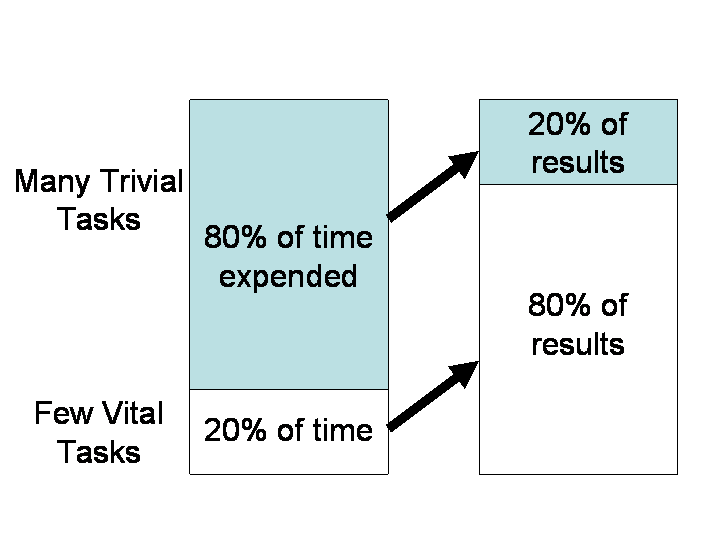Price-earnings ratio, or also known as P/E ratio, is a tool that is used by investors to help make a decision whether they should purchase a stock. The price-earnings ratio (P/E ratio) is the ratio for valuing a company that measures its current share price relative to its per-share earnings. The price-earnings ratio is also […]
The Examples of Just-in-time (JIT) Inventory Processes
Just-in-time (JIT) is an inventory strategy companies use to increase efficiency and decrease waste by receiving goods only as they are needed in the production process, thus reducing inventory costs. This technique requires producers to predict demand precisely. This inventory supply system represents a shift away from the older just-in-case strategy, in which producers carried […]
Understanding Pareto Principle and Its Application
Pareto Principle has originally taken from Italian economist Vilfredo Pareto and he created a mathematical formula to describe the unequal distribution of wealth in his country in 1906. Pareto observed that twenty percent of the people owned eighty percent of the wealth. In the late 1940s, quality guru, Dr. Joseph M. Juran, attributed the 80/20 […]
Altman Z-Score: Bankruptcy Score to Predict Bankruptcy
The global economic trends are repeatedly unpredictable. One time the economy rises, while the other falls. In the center of the economy are companies that go bankrupt, either both external and internal economic reasons. Bankruptcy means disaster because the whole organisation collapses. However, bankruptcy need not be an unannounced catastrophe. There is a method to […]
Tangible and Intangible Assets: What are the Differences?
Assets are anything having some value, which is owned by an individual or firm and is expected to provide economic benefit in future. It is the fundamental business prerequisite that is needed by the company for its smooth functioning. Assets are largely classified as non-current assets and current assets. Non-current assets are further divided into […]
Money Arbitrage: The Definition and Examples
Arbitrage is a term used to describe the purchase of a product which is then immediately sold to make a profit. Arbitrage is popular in the stock market or as a means to make the profit from goods being sold at differing prices in varying markets. A person who uses arbitrage is called an arbitrageur. […]
Will Marrying Someone with Bad Credit Affect my Credit Score?
The quick answer for that is no, under exceptional circumstances. You are not and will not responsible for your future spouse’s bad credit or debt unless you decide to take it on by getting a loan jointly to pay off the debt. However, your future spouse’s credit problems can prevent you from getting credit as […]
Recommended Books Every Investor Should Read
Being an investor is something that aims by people who wants better financial status. Investment is the essential part of long term financial planning, especially if you plan to have stable and sustainable financial condition, either related to increasing wealth, preparing retirement and so on. Generally, the most successful people in the world are also […]
Methods for Improving Internet Traffic of Your Website
Site traffic is the number of people visiting your site and the pages that they click on. It gives the owner an idea on just how many people drop by. In a sense, site traffic is a measure of the success of websites. More site traffic means more people are aware of your business. With […]
Good Debt Ratio?
It is widely accepted that having debt can help us to grow our business, or in term of personal finances, it can assist to fulfil needs. Why this important to know the debt ratio? And also why we need to know whether is it falls into a good or bad category? The debt ratio commonly […]
- « Previous Page
- 1
- …
- 29
- 30
- 31
- 32
- 33
- …
- 39
- Next Page »










